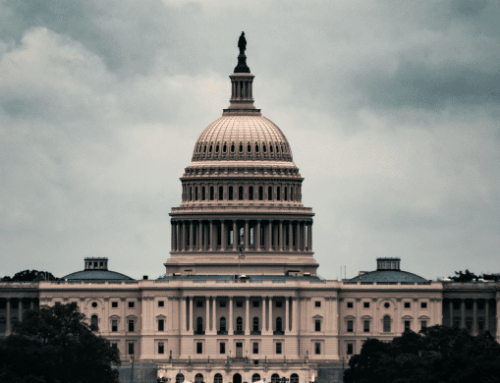Washington, D.C. – Today, U.S. Senator Elizabeth Warren (D-Mass.), a member of the Senate Armed Services Committee, and Representatives Sean Casten (D-Ill.), co-chair of the House Sustainable Investment Caucus, and Veronica Escobar (D-Texas), a member of the House Armed Services Committee, led their colleagues in a letter to the Federal Acquisition Regulation (FAR) Council, composed of the Department of Defense (DoD), General Services Administration (GSA), and the National Aeronautics and Space Administration (NASA), urging them to finalize the Federal Supplier Climate Risks and Resilience Rule as quickly as possible. The letter was also signed by Senators Edward J. Markey (D-Mass.), Jeff Merkley (D-Ore.), Bernard Sanders (I-Vt.), Tina Smith (D-Minn.), Peter Welch (D-Vt.), Sheldon Whitehouse (D-R.I.), and Representatives Nanette Barragán (D-Calif.), Julia Brownley (D-Calif.), André Carson (D-Ind.), Kathy Castor (D-Fla.), Adriano Espaillat (D-N.Y.), Bill Foster (D-Ill.), Raul Grijalva (D-Ariz.), Jared Huffman (D-Calif.), Ro Khanna (D-Calif.), Summer Lee (D-Pa.), James McGovern (D-Mass.), Kevin Mullin (D-Calif.), Eleanor Norton (D-D.C.), Alexandria Ocasio-Cortez (D-N.Y.), Katie Porter (D-Calif.), Janice Schakowsky (D-Ill.), Juan Vargas (D-Calif.).
The federal government spends around $700 billion annually on procurement, making it the world’s single largest buyer of goods and services. With these vast supply chains, the government has an obligation to measure, manage, and reduce the risks associated with climate change. With this rule, the federal government has an opportunity to use its purchasing power to protect taxpayer investments and government operations and ensure contractors take steps to reduce their carbon footprints and increase their resilience to climate-related disruptions.
The Federal Supplier Climate Risks and Resilience Rule would require major federal contractors to disclose basic climate-related risks and emissions, with varying levels of emissions reporting depending on the amount contractors receive in annual federal contracts. Only contractors with at least $7.5 million in annual contracts would be required to comply. Though the rule would only affect approximately 1.3 percent of federal contractors, the contractors that this rule would apply to account for about 85 percent of greenhouse gas emissions in the federal supply chain.
A review of the regulation’s comments conducted by the CERES Accelerator for Sustainable Capital Markets found widespread support among the public and key organizations. Specifically, the review found that virtually all of the roughly 19,000 individuals who commented on the rule and a plurality of the organizations that commented on the rule supported the rule.
“Finalizing the Federal Supplier Climate Risks and Resilience Rule is an important step in advancing resilience in U.S. government supply chains, mitigating climate risk and protecting federal taxpayers. As the largest purchaser of products and services in the world, the U.S. government has a unique opportunity to demonstrate best practices in reducing climate risk to its own assets and to society as a whole, while building markets for new zero-carbon and climate-resilient technologies. We echo Senator Warren’s call to finalize this critical regulation as soon as possible.” – Steven M. Rothstein, Managing Director, Ceres Accelerator for Sustainable Capital Markets
“When it comes to federal spending decisions, ignorance is not bliss. Climate change is costing taxpayers and threatening national security. The government needs procurement policies that allow it to understand and mitigate those costs and threats. Finalizing the Federal Supplier Climate Risks and Resilience Rule is fiscally and strategically imperative.” – Steve Ellis, President, Taxpayers for Common Sense
“The federal government spends $9 billion each year buying food, mostly from massive food companies like JBS, Cargill, and ADM who are known climate polluters. Requiring major federal suppliers to disclose their supply chain GHG emissions is critical to measuring and managing federal procurement-related emissions. Food and agriculture is a major driver of climate change and many companies fail to comprehensively disclose their emissions and strive toward a science-based reduction target, which handicaps the federal government from meeting its own climate goals. We thank Senator Warren for her leadership on this issue and urge the FAR Council to finalize this rule immediately.” – Lisa Gonzalez, Senior Food and Climate Policy Analyst with Friends of the Earth
“Military contractors receive the bulk of federal procurement spending and emit more carbon pollution than the Pentagon, yet they are not currently required to comprehensively report their emissions or mitigation targets. While more must be done to decarbonize and demilitarize US foreign policy, we are pleased the Biden Administration is taking steps to close this loophole, and join Sen. Warren’s call to finalize the proposed Federal Supplier Climate Risks and Resilience Rule as soon as possible.” – Hanna Homestead, Director, Climate and Militarism Program at the Center for International Policy
“Measuring and disclosing carbon emissions is the first step toward reducing them to limit the worst climate change harms. Demanding climate-related disclosure from its largest contractors will help make the United States more resilient in the face of increasing financial and human burdens resulting from climate-related disasters.” – Laura Peterson, Corporate Analyst & Advocate, Union of Concerned Scientists
Senator Warren is a leader in pushing federal agencies and regulators to act on climate and climate financial risk:
- In March 2024, Senator Elizabeth Warren (D-Mass.), released a statement critical of the Securities and Exchange Commission’s (SEC) finalized climate risk disclosure rule.
- In September 2023, Senators Elizabeth Warren (D-Mass.), Bernie Sanders (I-Vt.), Martin Heinrich (D-N.M.), Ed Markey (D-Mass.), Sheldon Whitehouse (D-R.I.), and Jeff Merkley (D-Ore.) sent a letter to Secretary of the Treasury Janet Yellen and newly-appointed Treasury Climate Counselor Ethan Zindler, urging the Treasury Department (Treasury) to take key actions pertaining to climate and climate-related financial risk to avert the impending environmental and economic crises.
- In September 2023, at a hearing of the Senate Banking, Housing, and Urban Affairs Committee, Senator Warren urged Chair Gensler to quickly finalize a strong climate risk disclosure rule, reminding him that he has a mandate to protect investors and strong public support.
- In September 2023, at a hearing of the Senate Banking, Housing, and Urban Affairs Committee, Senator Warren highlighted the recent withdrawals of major insurance companies from states that have a high and growing risk of climate disasters, the impact of this insurance crisis on homeowners, and the need for increased transparency from insurance companies.
- In September 2023, Senators Warren, Chris Van Hollen (D-Md.), and Whitehouse sent a letter to Secretary Yellen and Federal Insurance Office (FIO) Director Steven Seitz calling on the FIO to finalize its proposal to collect data from major insurers to better assess the impact of climate change on insurance availability and affordability, including in communities that are most vulnerable to the effects of climate change.
- In March 2023, Senators Warren, Whitehouse, and Markey sent a letter to Secretary Yellen following Climate Counselor John Morton’s departure and urging Treasury to take swift and aggressive action to tackle the climate crisis, which threatens our health, security, and financial system.
- In March 2023, Senators Warren, Whitehouse, and Representatives Dan Goldman (D-N.Y.) and Raskin and 47 of their colleagues sent a letter to SEC Chair Gary Gensler, urging him to protect investors and finalize a strong climate disclosure rule without further delay.
- In September 2022, at a hearing of the Senate Banking, Housing, and Urban Affairs Committee, Senator Warren called on SEC Chair Gary Gensler to protect investors and stand up to fossil fuel lobbying by issuing a strong climate risk disclosure rule quickly.
- In June 2022, Senator Warren led a comment letter with Senators Whitehouse and Brian Schatz (D-Hawaii) on the SEC’s mandatory climate disclosure rule, highlighting several areas for improvement and key elements that the SEC should preserve in its final rule, including strong Scope 3 emissions disclosure requirements.
- In March 2022, Senator Warren led a letter with Senators Whitehouse and Schatz urging the SEC to require disclosure of anti-climate lobbying activities in the Commission’s rule.
- In February 2022, Senator Warren led a letter to the SEC about the delayed release of the SEC’s proposed climate change disclosure rule, urging them to act quickly to get a rule out.
- In August 2021, Senators Warren, Kirsten Gillibrand (D-N.Y.), and Chris Van Hollen (D-Md.) sent a letter to John Morton – the first Climate Counselor at the new Climate Hub at the U.S. Department of the Treasury – urging swift and aggressive action to tackle the climate crisis, a major threat to the country’s health, security, and financial system.
- In April 2021, Senator Warren and Representative Sean Casten (D-Ill.) reintroduced the Climate Risk Disclosure Act of 2021 which would reduce the chances of environmental and financial catastrophe by requiring public companies to disclose more information about their exposure to climate-related risks.
###










